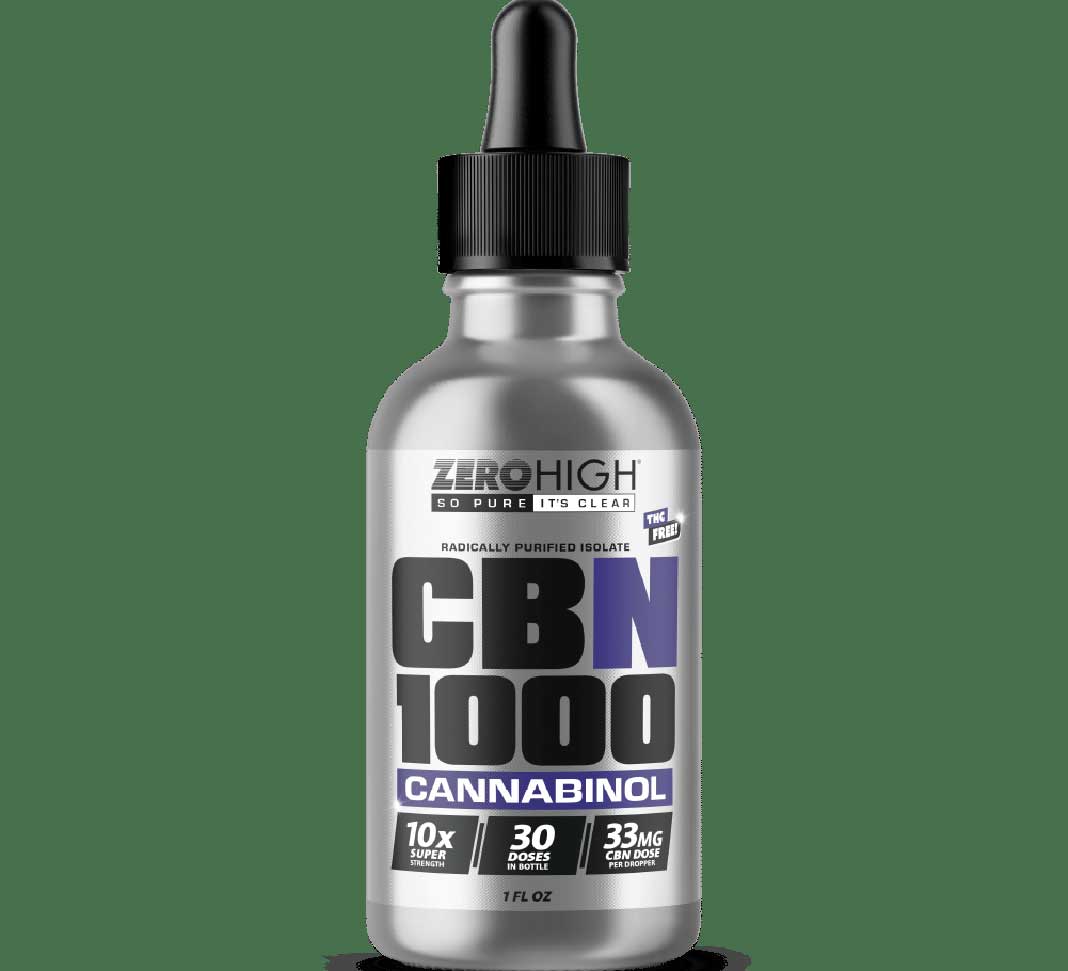CBD and THC dominate the headlines, constantly on the tip of everyone’s tongue with the industry doubling in size in the space of a couple of years.
THC has been fighting its notorious reputation, with continued evidence supporting its use to help treat seizures and with one product being FDA approved. Just the same, CBD is beyond a trend, being used for multiple purposes and being added to virtually everything nowadays.
A couple of years ago I highlighted the emergence of CBG, or cannabigerol, being more heavily studied than the other cannabinoids and the introduction of CBG oils.
Cannabigerol was being studied for its therapeutic potential in treating neurological disorders.
But now I want to direct people’s attention to another cannabinoid which is starting to make waves in certain parts of the world.
What Is CBN?
CBN, or cannabinol, is one of the many cannabinoids found in the cannabis plant. You may find small amounts of CBN in a full or broad spectrum CBD oil, albeit very miniscule quantities.
If you want to learn more, I’d recommend reading my guide to CBN, where I talk about the reported benefits, side effects and key facts.
How Can I Get CBN Products?
In the USA you can get CBN oil for sale at $140 for a 1,000mg tincture. Currently, the CBN market is largely made up of edibles, while the CBN edibles market share is growing rapidly.
In the USA, the total revenue from CBN products has gone from $5 million in Q2 of 2020 to $23 million in Q2 of 2021.
This might seem like explosive growth in demand, however one of the biggest factors was that there simply wasn’t many pertinent products available before this point. I don’t believe the demand has drastically increased, but that the product supplies have grown.
Historically, the CBN cannabinoid has largely been ignored by brands, as the process of producing CBN oil tends to be both more expensive and time consuming than CBD oil.
How Is It Made?
When the cannabis plant is exposed to ultraviolet light or air for extended periods of time, the THCA will transform into CBNA, or cannabinolic acid.
This is the precursor molecule before CBN is produced, through decarboxylation, which is the process of heating.
CBN comes from the breakdown of THC, which is psychoactive, however CBN is seen as only being mildly psychoactive.
There is an incredibly low amount of CBN in a fresh cannabis plant that are grown around the world, while exposure to UV lights helps to increase concentration of CBNA.
When Was CBN Discovered?
Cannabinol was first discovered in 1899 by Thomas Wood, Thomas Easterfield and W.T. Spivey, while it was actually the first cannabinoid to be isolated from cannabis, through an ethanol extract.
The next step wasn’t achieved until the 1930’s, when British chemist Robert Sidney Conn managed to determine its structure, once again being the first of the cannabinoids.
Why Don’t We Have It Here In The UK?
As CBN is created through THC ageing or being exposed to light or air, this raises an issue, as the products sold in the UK are from EU certified hemp plants containing very small quantities of THC.
While the rules are continuously changing and relaxing with time, we’re still quite some way away from the laws being relaxed and this means we will lag behind the USA and a few other countries when it comes to the emergence of CBN oils and edibles.



